Editor’s Note: Sign up to get our new weekly column as a newsletter. We’re looking back at the strongest, smartest opinion takes of the week from CNN and other outlets.
“O Gertrude, Gertrude,” King Claudius says to his wife in Act IV of Hamlet. “When sorrows come, they come not single spies. But in battalions.” A distraught Ophelia has just exited, leaving the royal couple worrying about her madness, the brooding of Gertrude’s son Hamlet and their own fates.
Nearly a year ago, the Covid-19 pandemic began bringing death, disease and economic distress to millions of households. But the disaster hasn’t come alone – a host of others have struck the US in the past 12 months.
Wildfires in America’s West last year consumed more than 10 million acres, destroyed 10,500 structures and killed 31 people, according to the Insurance Information Institute.
The 2020 hurricane season broke the record for the number of major storms, forcing meteorologists to dip into the Greek alphabet for new names. And this week freakish winter weather swept into the South, bringing record low temperatures to states such as Texas, Louisiana and Kentucky. At least 50 deaths have been attributed to the weather, including 10 hypothermia deaths in Harris County, which is home to Houston. Millions of people lost heat, power and access to food and clean water.
America isn’t a failed state, Frida Ghitis noted, but “the way it has ‘handled’ recent disasters, from the pandemic to the current weather crisis in Texas”, makes a “mighty nation” look like one.
As always in times of disaster, people turned to the government for help. The crisis brought into sharp relief politicians’ mistakes, wrote Ghitis. “Why are Texans freezing? There are many reasons, but this would not be happening if the state – dominated by Republicans committed to a small government ideology – had not severed its links to the national electrical grid for the sake of avoiding regulation. That regulation, among other things, would have required utilities to be better prepared. But Texas, the country’s top energy producer…is the only state in the contiguous US essentially unable to borrow energy from other states.”
Ted Cruz, the junior senator from Texas, isn’t in charge of keeping the lights on, but his decision to leave with his family for a vacation in Cancun on Wednesday was spectacularly ill-timed, prompting him to rush back and admit his mistake.
“Last August,” recalled James C. Moore, “Cruz boldly mocked California’s electricity problems during their heatwave and fires, tweeting that the state was ‘unable to perform even the basic functions of civilization, like having reliable electricity.’ More hilariously, Cruz ridiculed the Austin mayor for flying to a Mexican beach during Covid after urging his city’s residents to stay home. Senator Sensitive will be performing his comedy act for at least four more years.”
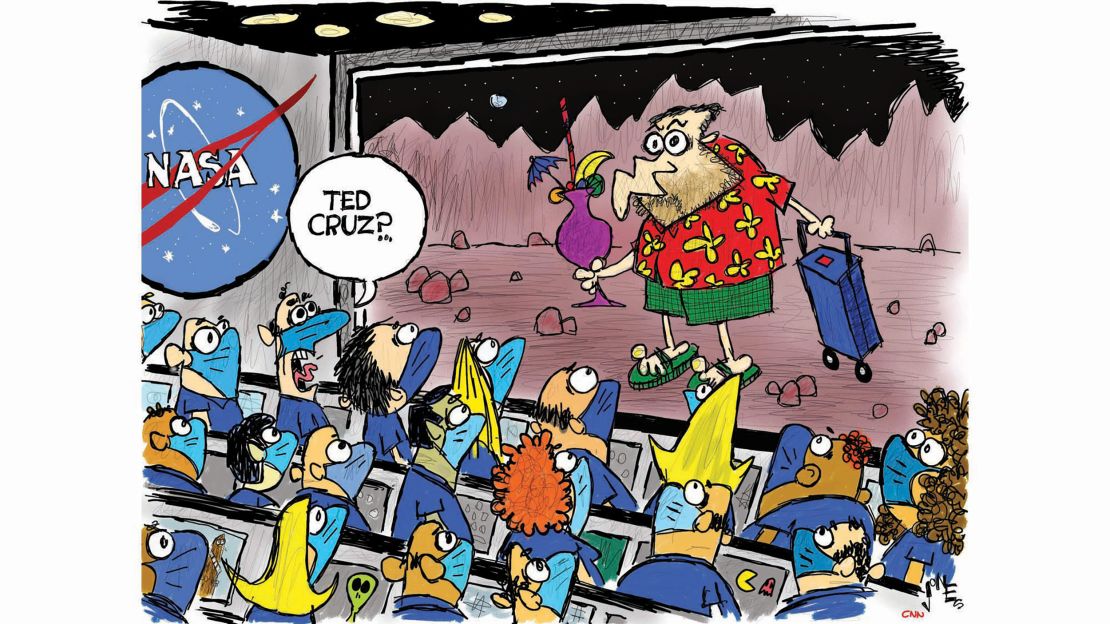
Adam Sobel, who studies extreme weather, wrote “there is an ongoing, legitimate scientific debate” about exactly what role global climate change plays in producing storms like this week’s. Some in the media and government claimed that the Texas “blackouts are happening because the state has too much renewable energy, and in particular because wind turbines are freezing. Not true. While some wind turbines did freeze, the majority of the lost power was from coal, natural gas, and nuclear plants that went down. Wind accounts for only 10% of Texas’s power during winter.”
Demonstrating that government can work effectively is key to the fortunes of President Joe Biden, wrote Julian Zelizer, who noted “there has been considerable confusion over the plan to reopen schools and the administration’s contradictory statements on the issue have already drawn criticism.”
After this week’s weather in Texas, Biden “declared a major disaster and ordered federal assistance, but what comes next will be key…Presidents are judged right off the bat by their ability to govern, implement policies and wield the levers of the federal government efficiently.”
On Friday the US officially rejoined the Paris climate accord. Alok Sharma, the President of COP26, the 26th United Nations Climate Change Conference, welcomed the US “back to the frontline of the global fight against climate change.” Its effects are all around us, Sharma wrote: “melting glaciers, sea level rises, crop degradation, deforestation, and pollution choking some of the world’s greatest cities…taking a heavy toll on human health, the destruction of homes and livelihoods, and an alarming loss of biodiversity.”
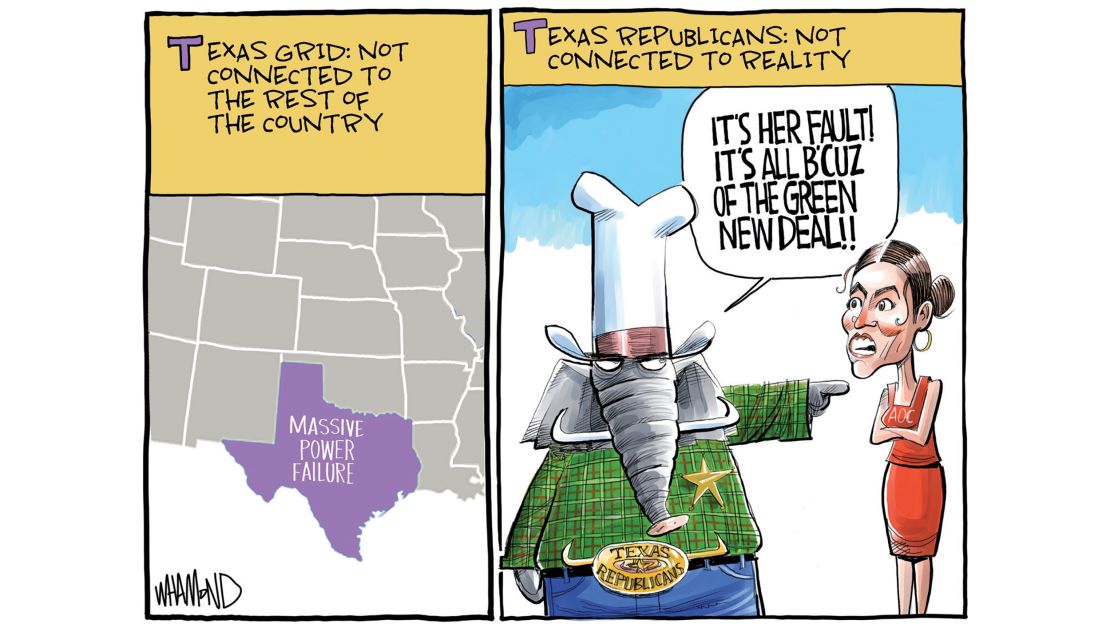
Hitting the road
Sandy Tolan and his wife Andrea Portes spent Christmas in Tucson and were planning to head home to Los Angeles when they decided they didn’t want her to get on a plane in the midst of a pandemic to pick up their 11-year-old son, who was visiting his biological father in Florida. So, like many Americans these days, they decided driving cross country would be a safer bet.
“We focused on staying healthy, not an easy task when so many fellow citizens – in gas stations, quick marts, even take-out restaurants – refused to wear masks,” Sandy Tolan wrote.
At a Subway in Arizona, “a customer in front of me ignored the ‘mandatory mask’ sign. When I asked the employee why they didn’t enforce wearing a mask, she just shrugged. At a Texas barbecue joint, as I waited for takeout in my ‘Green Bay Football’ sweatshirt, a man in a line of maskless bar patrons looked over, loudly proclaiming the Packers would lose that coming weekend. (Alas, he was correct.) But for the most part we faced little hostility. Sometimes people stared at us as if we were Martians….”
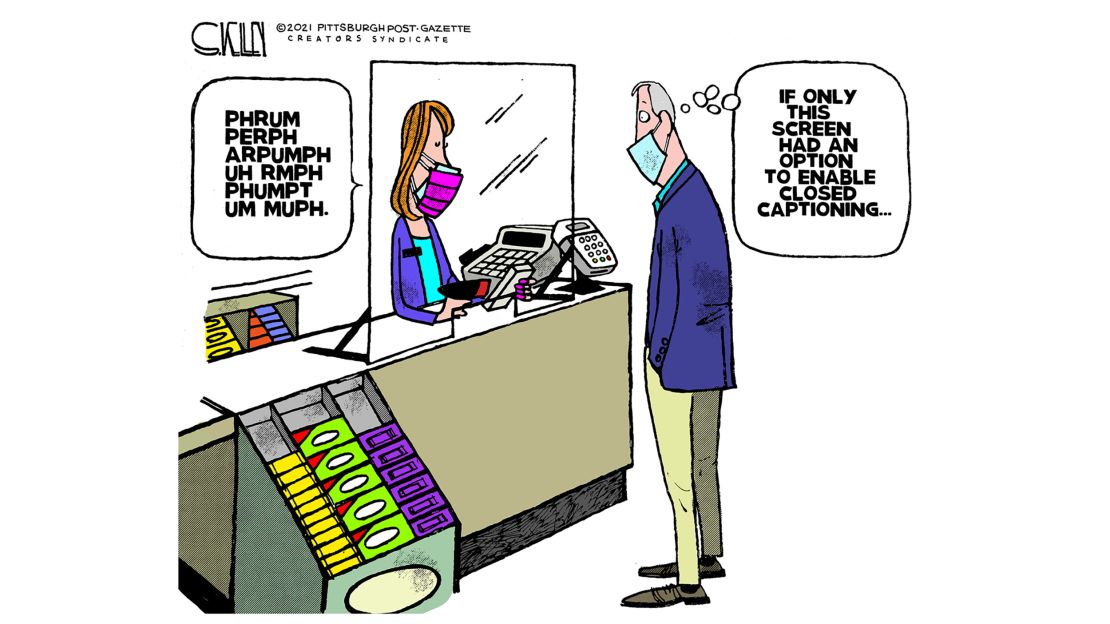
“Nomadland,” a film that is being touted for major awards this season, was filmed in 2018, long before anyone could foresee a road-trip boom provoked by a pandemic. “Two years later Covid lockdowns would send sales of RVs and camper vans skyrocketing,” wrote Sara Stewart. “Suddenly, everyone wanted to hit the road in their own home on wheels – because that felt like one of the only safe places to be.”
The movie stars Frances McDormand as a “widowed and unemployed Nevadan who puts most of her belongings into storage and hits the road in her van, retrofitted to be a home on wheels. She drives around the US from work gig to work gig. One job is holiday-season packing at a gargantuan Amazon warehouse in Virginia, another harvesting sugar beets in North Dakota. Along the way, she connects and reconnects with like-minded travelers, older Americans who, for one reason or another, are living out of their vans and RVs, doing seasonal work and occasionally coming together to trade tips and celebrate nomad life.” The film, she said, is “a masterpiece of natural beauty.”
In Vermont, Scott Langley was “walking by a frozen lake, singing to his departed wife,” wrote Thomas Lake.
He “was 65, diabetic, nervously enduring the unknown period of time between this afternoon and the day he could get his coronavirus vaccination. He’d been up since 5:30, and had taken his medicine, gotten his 14-year-old daughter to school, worn two masks into Hannaford, resisted the urge to punch the maskless customer in the produce section. He ate a low-carb lunch and vigorously pedaled the exercise bike, trying to keep his blood glucose down, doing whatever he could to keep Ailyn from becoming an orphan.”
And the song he was singing was “Some days are diamonds, some days are stone,” an apt reflection of the hard times we’re going through and the hope that keeps us going, wrote Lake.
For more on coping with Covid:
Caroline Nyczak: My baby and I are safer with the Covid-19 vaccine than without it
Pat Coskran: After getting a Covid-19 vaccine, I thought about my son
Cuomo, Newsom and Covid-19
Last spring, New York’s Andrew Cuomo and California’s Gavin Newsom were feted as governors who had figured out how to fight Covid-19, in contrast to the Trump administration’s erratic leadership. Cuomo wrote a book about it and even got an Emmy “Founders Award” for his daily pandemic briefings.
Now he’s under fire for his handling of information on nursing home deaths, and Newsom is facing a potential recall vote.
“Late last month, New York State Attorney General Letitia James issued a scathing report about how nursing homes in the state handled Covid-19, including a finding that the state’s Department of Health undercounted Covid deaths at nursing homes by approximately 50%,” wrote Jennifer Rodgers.
When the Justice Department and state legislators asked for data on nursing homes, “the Cuomo administration, according to a recent admission by a top Cuomo aide, delayed the release of the figures out of concern about a possible politically motivated federal investigation…If New Yorkers want transparency and accountability from this administration, our public integrity systems provide the tools to make that happen.”
Newsom’s mistake was going to a birthday dinner for a lobbyist at the famous restaurant French Laundry, wrote Lincoln Mitchell. “This occurred while California was under a partial lockdown and gatherings of a dozen people like this were forbidden, even if held outdoors.” Some Californians, including his Republican rivals, have never forgiven the governor for it. “This was an enormous misstep by Newsom, for which he offered a less than entirely convincing apology.”
Now Republicans are helping collect signatures on petitions to force Newsom to undergo a recall vote, the year before he’s eligible to run for reelection anyway. It’s an overreaction, wrote Mitchell. The governor’s record has been mixed, but on Covid, California’s “response under Newsom has been, relative to other states, about the middle of the pack or slightly better.”
‘Former guy’ and Biden
For an hour on Tuesday evening, it was as if the last four years hadn’t happened. In a CNN town hall hosted by Anderson Cooper, President Biden calmly set out his policy priorities, answered audience questions and reassured an 8-year-old girl that she had little reason to fear getting Covid-19. The biggest hint that he was succeeding a wildly controversial president came when Biden referred to the “former guy” and said, without naming him, that all the living former presidents but one had called him. (“I’m tired of talking about Donald Trump,” Biden said at another point.)
“The problem with radically changing norms of behavior in politics, and especially with making political life crasser and more shocking, is that it’s hard to walk that back and sustain the public’s attention,” wrote Jill Filipovic. “For so many, the Trump presidency was horrible and horrifying. It also garnered clicks and attention, outrage and fandom.” The media needs to “cover this White House not as voyeurs obsessed with scandal and conflict, but as interpreters and checks on power who can hold this president accountable and explain what his policies and decisions actually mean for our day-to-day lives. And the rest of us need to act in kind and take on the responsibility of good citizenship…”
Biden’s top legislative priority now is the $1.9 trillion Covid relief bill. The relief is urgently needed, wrote Jeffrey D. Sachs, but taxes eventually will have to go up to help pay for it. “Fortunately, we have many good places to raise tax revenues, starting with corporations that are flush with cash; billionaires who have hit the jackpot during Covid-19; and polluters who should bear the social costs of their damage to society.”
The pandemic exposed holes in America’s safety net that need to be plugged, observed Debra L. Ness. Twenty-eight years ago this month, the Family and Medical Leave Act (FMLA) provided many workers with unpaid time off to care for themselves and loved ones. Covid-19 “jumpstarted incredible momentum for paid family and medical leave, building off the successes in nine states and in Washington, DC. Our country began to realize that workers shouldn’t sacrifice their health and the well-being of their family for a paycheck – not during Covid, not ever.”
GOP civil war
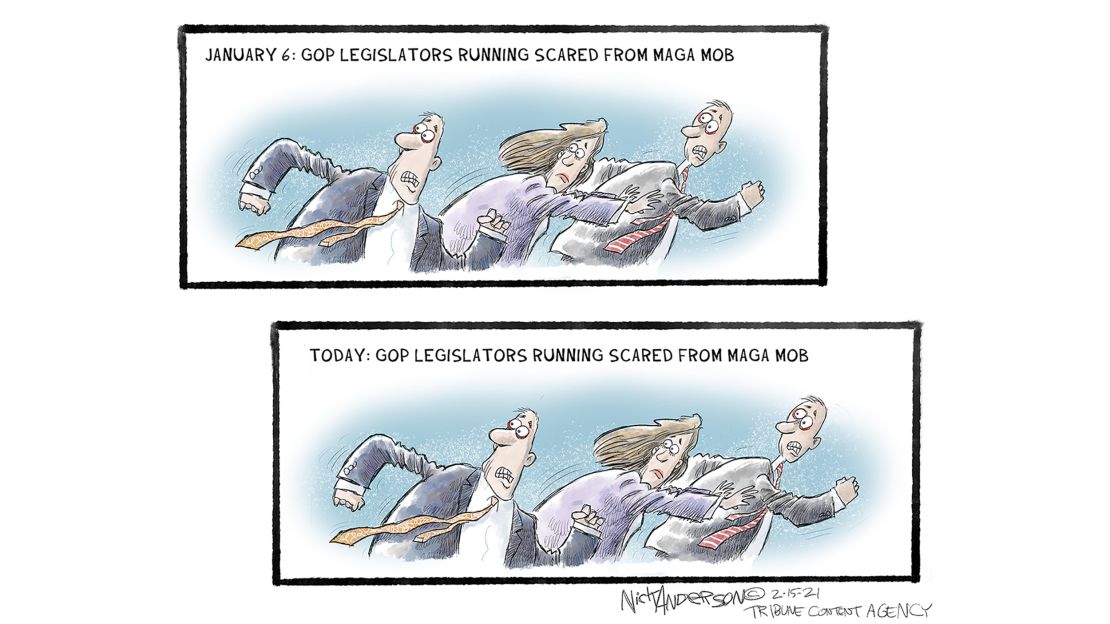
The “former guy” tag is an effective way to counter Trump, wrote Michael D’Antonio. “Depriving Trump of attention hits him where it hurts. As President, and before that as a private businessman, Trump was an eager attention-seeker, steadily barraging the world with outrageous statements, conspiracy theories and other nonsense…” But in Republican circles, where the former president’s support is still substantial, ignoring Trump may not be an option.
Rep. Adam Kinzinger, an Illinois Republican who has blasted Trump, became the target of a letter from some of his relatives accusing him of joining “the devil’s army.” Psychologist Peggy Drexler wrote that “families have been ripped apart by the turn politics has taken, and that much of blame lies with the former president, a longtime spokesmodel for conflict over comity.”
After voting to acquit Trump in the impeachment trial, Senate Minority Leader Mitch McConnell put the blame squarely on him for whipping up the crowd that stormed the Capitol on January 6. The civil war among Republicans is now out in the open, with Trump issuing a statement excoriating McConnell.
Lanhee J. Chen wrote, “McConnell’s actions in the last several days… may seem confusing – or just maddening – to observers on both the right and the left, but they were not illogical or ill-conceived. He is doing all he can to ensure that he is in a position to push the GOP in the direction he believes is best for the future success of the party.” That means trying to block Senate candidates whose extreme pro-Trump views would alienate moderate voters.
“Trumpism is the opposite of conservatism,” wrote former Sen. Jeff Flake, a Republican. “There is nothing to gain by making a pilgrimage to Florida. There is no enlightened mystic at Mar-a-Lago – just a diminished man who lost an election and couldn’t accept it.”
Mars
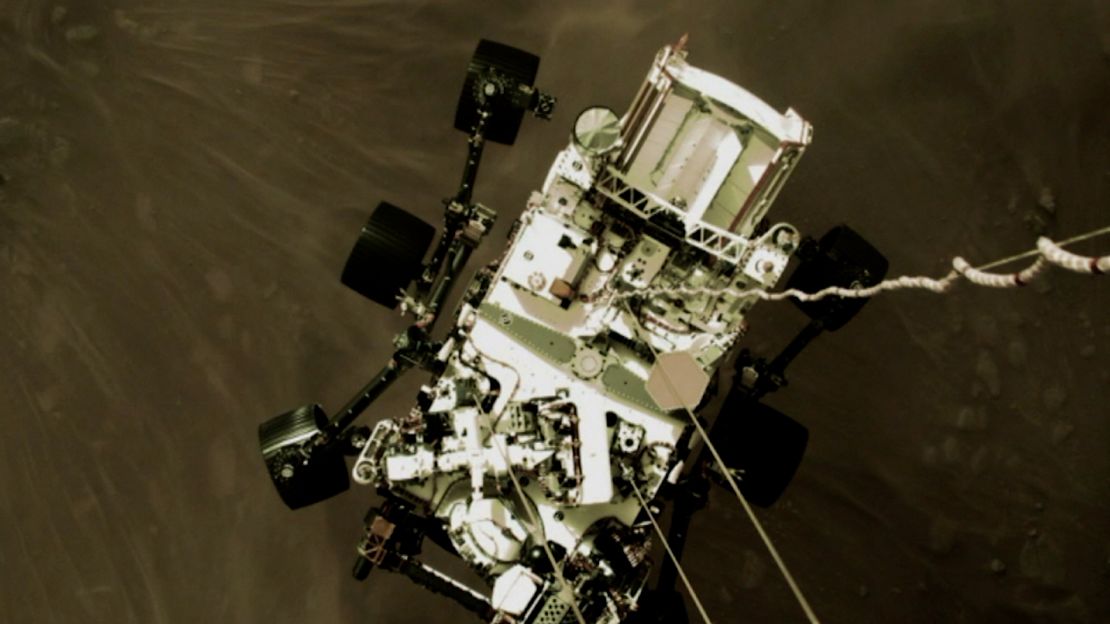
On Thursday, NASA’s Perseverance rover, launched last July, landed in the Jezero crater on Mars, “which was once a river delta, disgorging into a lake,” as physicist Don Lincoln pointed out.
It could lead to the biggest scientific discovery of its kind in four centuries: “The discovery of life that evolved on a planet other than Earth would change humanity’s understanding of its place in the cosmos. The last time such a paradigm-shifting advance occurred was in 1610, when Galileo first saw the moons of Jupiter, proving that the Earth (and, by extension, humanity) isn’t at the center of the universe. And, since our celestial neighbor once hosted liquid water, it’s an excellent location to look for ancient life.”
Rush Limbaugh
Talk radio played a huge role in the rise of Donald Trump, the politician. And the master of that medium was Rush Limbaugh, who died this week at 70. Limbaugh’s show, wrote historian Nicole Hemmer, “laid the groundwork for Trump’s presidency.” Top Republicans “essentially transformed Limbaugh into the de facto leader of their party – and turned conservative media into a powerful political institution that carried as much weight as the party itself.”
“Limbaugh came to talk radio during the era of the shock jock, when hosts competed to see who could be the most outrageous,” Hemmer noted. “So he would level vicious attacks on people suffering from AIDS, or on the poor and homeless, and then, when greeted with outrage, say that his critics just weren’t in on the joke.”
SE Cupp said in her weekly “Unfiltered” video that Limbaugh “didn’t just tap into populism, he exploited its worst undercurrents – the grievances, the resentment, the anger, the racism, the bigotry, the xenophobia. He spent years fomenting it, turning neighbor against neighbor, American against American, giving permission to all his listeners to join him in devaluing the lives of others.”
Abraham Lincoln
Our colleague Breeanna Hare asked six historians from CNN’s new series “Lincoln: Divided We Stand” for their thoughts on the lasting myths surrounding the 16th President.
Edna Greene Medford of Howard University observed that one of “the more complicated and persistent historical beliefs is the one that credits Abraham Lincoln as having single-handedly ‘freed the slaves.’” With the Emancipation Proclamation, she wrote, “he opened the door that led to the end of slavery throughout America. But that is only half of the story. Often missing in the emancipation narrative is the role others played in freeing enslaved people and ending the institution. In order for freedom to be realized, bondmen and women had to either make their way to the Union lines or be liberated by Northern soldiers and sailors. Among that liberating force were Black men, who made up 10% of the Union military.”
To Kate Masur of Northwestern University, a key myth is “that Lincoln was so magnanimous and empathetic that if he had not been murdered, the United States would have avoided the racial conflict of the Reconstruction era and maybe even decades of state-imposed discrimination and disenfranchisement.” History suggests otherwise, she argued.
Don’t miss

Jane Greenway Carr interviews Gayle Tzemach Lemmon: These are the women who crushed the Caliphate
Christine Todd Whitman, Norman Eisen and Joanna Lydgate: The accountability era begins
Greg Fischer, Eric Garcetti, Lori Lightfoot and Brandon Scott: Gun violence crisis in America’s cities
Ian Kumamoto: Asian Americans like me are fighting hate with tradition
AND…
The binge watch
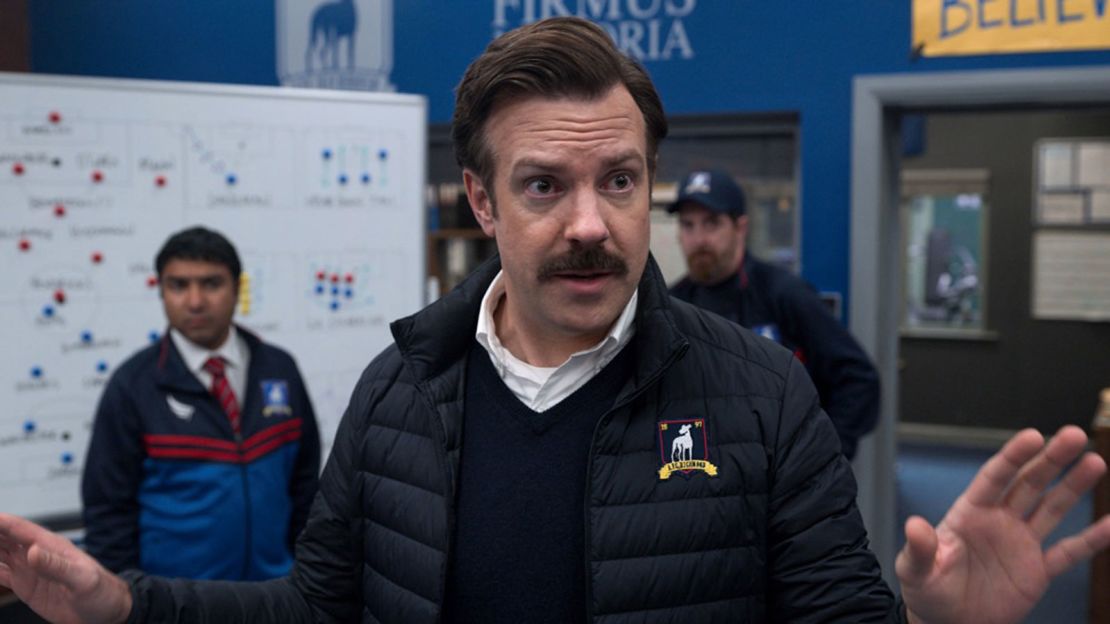
In the ever-expanding world of streaming television, the question of “what to watch” is inevitably leading to the “where to watch it” question. There’s no doubt more quality television around than anyone could possibly binge.
The Canadian comedy “Schitt’s Creek” drew a devoted audience on Netflix. More recently, Ted Lasso began vying for the lead spot in the trend of “nice” comedy, on Apple TV+. “Flip it on and, like one of those light-therapy sun lamps, feel your winter angst melting away,” wrote Sara Stewart. It’s “a mental health stealth bomb. Dressed up as a sports comedy, it espouses a philosophy that’s hilariously antithetical to that genre: The notion that being a decent person, and treating other people with respect, is more important than who scored the most goals.”
And this week, HBO Max, which is owned by CNN’s parent company WarnerMedia, began airing “It’s a Sin,” a UK-produced series about “the last great pandemic to engulf Britain and America: the HIV/AIDS crisis of the 1980s and 1990s,” wrote Kate Maltby. “Despite its status as historical storytelling, one of the things that makes ‘It’s a Sin’ extraordinary – and there will be few more extraordinary pieces of television this year – is its resonance in the time of Covid-19. This is a show about what pandemics do to our friendships; to our capacity for physical intimacy; to our fear of other people’s bodies.”

